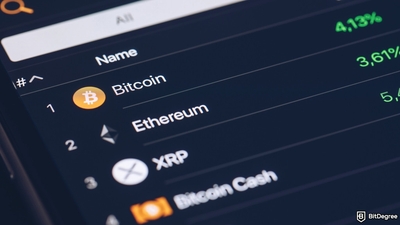Free Airdrop Season 7 is LIVE! Answer fun questions or do simple tasks to earn rewards from the $30K BitDegree prize pool. Participate Now ! 🔥
Nigerian Naira No Longer Supported on Binance from March 8
Key Takeaways
- Binance announces the discontinuation of all services involving the Nigerian naira (NGN) by March 8 due to regulatory challenges.
- Users are urged to withdraw or convert their NGN holdings before the deadline. The remaining NGN balances will be automatically converted to Tether (USDT).
- Nigerian authorities increase scrutiny over Binance, leading to executive detentions and a summons for Binance's CEO amid concerns of illicit financial flows.
On March 5, Binance, the leading crypto exchange, declared its parting with the Nigerian naira (NGN).
All services related to the currency will be halted by March 8, highlighting a shift in its operations amidst regulatory challenges.

Did you know?
Subscribe - We publish new crypto explainer videos every week!
What is a MetaMask Wallet? (And How to Use it - Animated)


Binance has already stopped accepting NGN deposits ahead of the deadline, discontinuing such transactions from 2:00 p.m. UTC on March 5.
The platform has advised users to either withdraw their NGN holdings, exchange NGN for crypto, or trade their NGN assets before the cut-off date.
Binance has specified that any NGN balances remaining after 8:00 a.m. UTC on March 8 will be automatically converted to Tether (USDT) based on the seven-day average closing price of the USDT/NGN pair on Binance Spot.
By March 7, all existing NGN spot trading pairs will be removed entirely from the exchange. Furthermore, the exchange's payment service, Binance Pay, will eliminate NGN from its list of supported currencies by March 6.
As Binance transitions from NGN transactions, the focus turns to how the crypto community will navigate these regulatory waters moving forward.
The backdrop to this decision involves increased scrutiny from Nigerian authorities. The Central Bank of Nigeria (CBN) has recently raised concerns regarding "suspicious flows" of funds through Binance detected in 2023, highlighting potential risks to the nation's financial security.
This situation led to heightened suspicions over Binance's operations, with the National Security Adviser in Nigeria even detaining and confiscating the passports of two Binance executives in Abuja.
In addition, the Nigerian House of Representatives Committee on Financial Crimes has summoned Binance CEO Richard Teng, giving him until March 4 to appear before the committee.























